

Crops, Pollinators and People
‘Crops, Pollinators and People’ (nicknamed 'Buckbee') is a multidisciplinary project funded by the Leverhulme Trust, investigating the interrelations between crop plants, insect pollinators, and human management in prehistory. It studies the expansion and evolution of buckwheat across Eurasia in relation to honeybee populations and their management.
The Buckbee project is based at the Department of Archaeology, University of Cambridge, in collaboration with the School of Chemistry, University of Bristol.
About the Project
Insect pollination is crucial for crop yield and global food production, but currently threatened by several factors. While agricultural intensification may threaten these pollinators today, different forms of human action in the past may have been important in enhancing them. The ‘Crops, People and Pollinators’ (or ‘Buckbee’) project explores the dynamics of crop-pollinator-human relationships through time. We know a reasonable amount about the history of bee management for wax and honey. We know much less about the relation between the ecology of bees in the past and the spread of those crops that depend upon them. Were the spread and intensification of agriculture since plants were domesticated linked with bee management and rising bee populations?
Research on the origins and spread of crop plants has focused on those self- or wind-pollinated crops, principally the cereals, that were domesticated earliest and dominate the world’s global economy today. Previous work in the FOGLIP project focused on the spread of these major cereals. Buckwheat is among several economic plants, including a number of major fruits and vegetables, whose spread and viability has been dependent upon the parallel ecology and biology of pollinator taxa such as bees. That key interaction in the past remains largely unexplored.
Our study system, buckwheat and honeybees, is being analysed by an interdisciplinary approach using archaeobotany, pollen science, ecological modelling, genomics, archaeology and geochemistry. The project aims to infer the past distributions and population size trends of buckwheat and honeybees, relate these to climate, and research human management of honeybees, in China and western Eurasia.
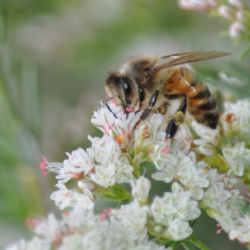
Project Members
- Professor Martin Jones (Principal Investigator)
- Professor Richard Evershed (Co-Investigator)
- Dr Enrico R. Crema (Co-Investigator)
- Dr Harriet Hunt (Research Associate)
- Dr Diane Lister (Research Associate)
- Dr Yang Liu (Research Associate)
- Marta Krzyzanska (PhD Student)
- Sophie Brown (PhD Student)
News & Events
Joint Sino-British Workshop on Environmental Archaeology
McDonald Institute for Archaeological Research, University of Cambridge, 16th-18th July 2018
Excavations within the cave of Fodongi in southwest China are providing novel insights into the sophisticated use of plants and animals over the past 17,000 years, twice as far back as the beginnings of agriculture. These were among the principal findings reported to an international workshop at the McDonald Institute last month.
Eight scholars from institutions in Beijing and Kunming were hosted at the Institute for the three-day workshop on Environmental Archaeology. It formed part of the Leverhulme Trust funded ‘Crops, Pollinators and People’ project led by Prof. Martin Jones and Dr Harriet Hunt. We also welcomed collaborators from the University of Bristol, Washington University in St. Louis, and the Needham Research Institute.
Research presentations by both Chinese and British participants were followed by a discussion of palaeoenvironmental reconstruction, and subsistence strategies in southwestern China in the late Pleistocene and early Holocene periods. We looked ahead to future collaborations between Cambridge and China, which Martin Jones and Harriet Hunt will be following up in China in autumn 2018.
All participants enjoyed a formal dinner in Darwin College following the workshop, and our Chinese guests were given a tour of the Needham Research Institute by the Director, Prof. Jianjun Mei, before leaving Cambridge.
We thank the Leverhulme Trust (grant no: RPG-2017-196), the University of Cambridge, the National Basic Research Program of China (grant no: 2015CB953803) and the National Natural Science Foundation of China (grant no: 41730319) for financially supporting this event.
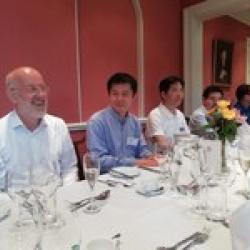
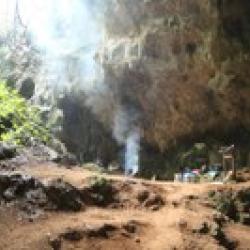
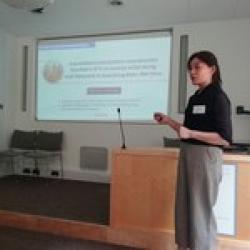
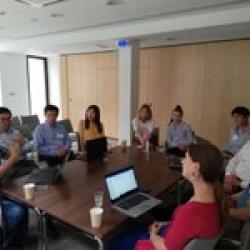
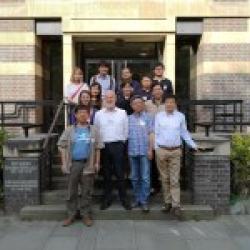
Funder
Leverhulme Trust


